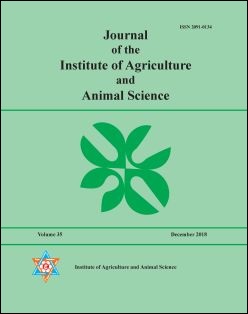Organic Agriculture in Nepal: Policies and Practices
DOI:
https://doi.org/10.3126/jiaas.v36i1.48430Keywords:
agro-chemicals, conventional agriculture, policy gap, sustainable productionAbstract
The extensive use of agro-chemicals deemed the conventional agricultural system of Nepal as unsustainable, regarding which organic agriculture seems as a realistic alternative, which lays its major focus on sustainable production system rather than on productivity. It has been gaining huge interest and is being widespread in contemporary context. In this regard, the paper attempts to outline the status and practices of organic agriculture in Nepal. Highlighting the major policy initiatives taken for promoting and advancing organic agriculture in Nepal, the paper also brings in light the relevancy of global agenda Sustainable Development Goals 2030 and other international conventions for prioritizing organic agriculture in Nepal. Though being determined in the direction of organic agriculture, contradictory decisions and policies deterring organic agriculture continue to emerge in Nepal. The paper, thus, highlights those deterring policies and identifies the major policy gaps hindering the growth of organic agriculture in Nepal. Presenting the case of ambitious mission of Karnali province to gradually transform itself to fully organic province, the paper assesses the major constraints for organic agriculture and suggests some policy recommendations that needs to be addressed to further its growth and development and eventually develop a sustainable food production system to ensure the long term national objectives of food security and inclusive economic growth for healthy and quality life of all Nepalese

